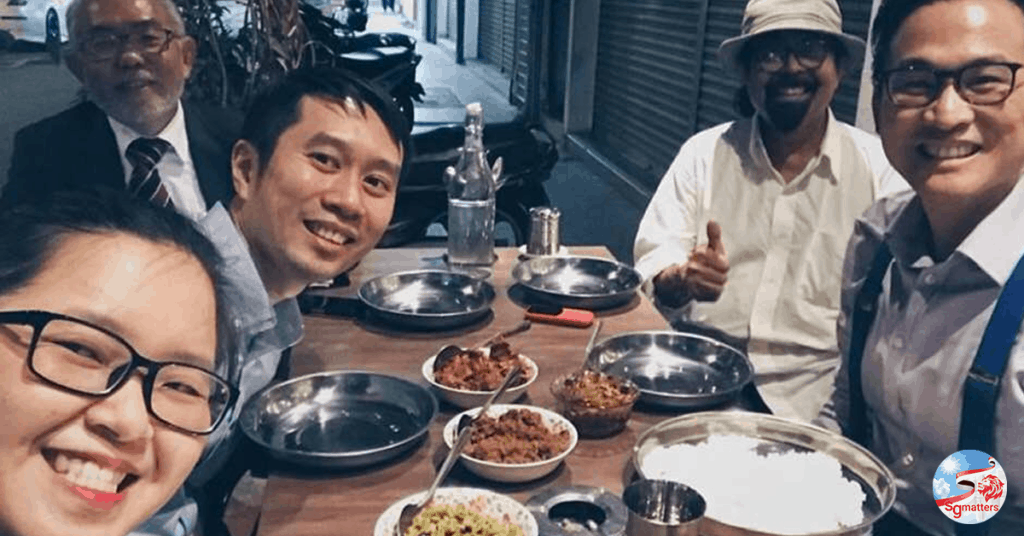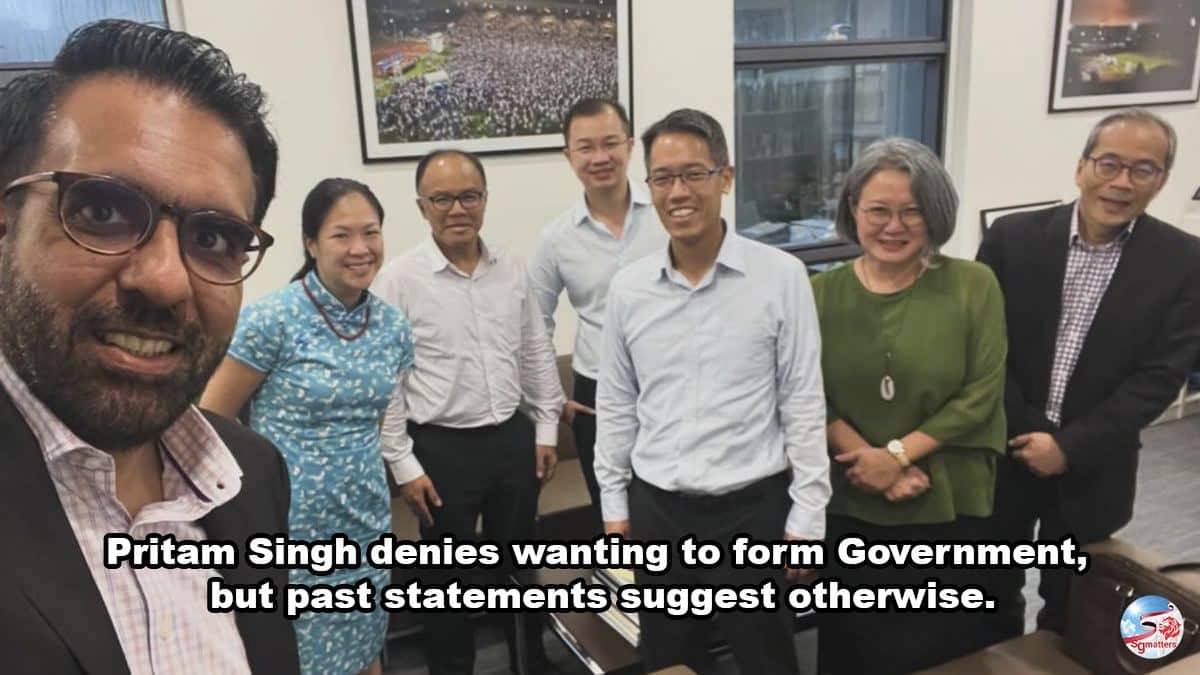The Foreign Intervention Countermeasures Act (FICA) was passed into law earlier this week, making it the Foreign Intervention Countermeasures Bill.
Over the past week, Kirsten Han and her merry band of activists have stated their belief in several places that allowing foreign interference is democratic, that disallowing it is authoritarian, and that the government is after her.
Like Kirsten Han, we too believe in the ideals of democracy and liberty. These are after all enshrined in the pledge Singaporeans recite every morning in schools. But on a less aspirational and conceptual level, Abraham Lincoln put it best: democracy in practice is government of the people, by the people, for the people.
Democracy is not government of the people by people acting on behalf of foreign entities, with the connivance of foreign entities, for the benefit of the people as defined by foreign entities or worse, for the outright benefit of foreign entities.
At a basic level, the Bill protects democracy by preventing foreign interference in the government of the people, by the people, for the people.
The Bill protects civil society
Further, the Bill protects civil society and its values of freedom of expression and association. If what civil society actors say and do is the result of quid pro quo with foreign actors, the
freedoms of expression and association are effectively poisoned. Civil society is not sustainable when its credibility and trust are in doubt. Thus, the Bill keeps civil society actors honest transparent in their dealings outside and within Singapore.
A reasonable, respectable and responsible activist and civil society actor who believes in democracy would in no circumstances knowingly cooperate with foreign agents.
But why would foreign intervention exist? What’s the objective? What does it really look like?
British statesman Lord Palmerston noted that states have no eternal allies or perpetual enemies, only permanent interests. His equally brilliant contemporary Carl von Clausewitz once said that war is the continuation of politics by any other means. Stopping short of war, subversion of public policy by foreign state actors, actors on behalf of states, or even non-state actors with state-like powers and interests, is also the continuation of politics by any other means – to change your national policy into mine.
Foreign intervention is qualitatively different from what Clausewitz referred to as politics and what modern citizens understand as diplomacy. Whether it is official diplomacy by ambassadors, lobbying by business chambers, backchannel diplomacy between think tanks and personal envoys, or cooperative international processes, normal politics is transparent.
There are clear identifiable actors and proxies, transparency of interests, and no hidden quid pro quo. Contrast that to foreign intervention. Domestic civil society, senior civil servants, even elected officials find themselves answering to and funded by hidden and undeclared foreign interests.
Great power games making a comeback
As the post-war world order headed by America approaches its inflection point, great power games have been making a comeback especially in Southeast Asia and its geostrategic and resource-rich South China Sea. The identity of the players is no secret and so are their interests. And their method of foreign interference has been open to all to see for the past decade of power jockeying.
In UK discussions on their proposed Foreign Lobbying Act, lawmakers like Bob Seely point out “the issue is about how nowadays foreign countries, using formal or informal actors and partners, being either companies or individuals, can manipulate and subvert Western democracy and policy… It goes beyond simply lobbying. The Soviets didn’t work with big financial actors, they didn’t hire Westerners to sit at the board of Gazprom.”
Kirsten Han’s claim
It is clear that Kirsten Han’s claim that FICA was drawn up to specifically target her is categorically and demonstrably untrue. But will the Bill actually sweep her up nonetheless? Is Kirsten Han not a reasonable, respectable, and responsible civil society activist?
Kirsten Han’s collaboration with Dr. Thum Ping Tjin at New Narrative hit early obstacles when ACRA rejected their application to set up a company. It turned out that company would be a wholly owned subsidiary of a UK registered company that received funding from a George Soros-linked foundation to the tune of US$75,000.
Why is George Soros even seen as a foreign agent?
The very liberal New Yorker magazine put it this way: American citizen Soros has a particular vision of a progressive international order, which he achieves by setting up foundations in other countries to intervene in their politics, so as to achieve desired policy outcomes. “He is portrayed as someone who has always tended to live by his own rules, and will change those when it suits him; who can be offended if a leader of a country where he is involved philanthropically is insufficiently subservient; who will consort with an autocratic regime in order to see his programs carried out; and who is intent on imposing his influence generally on an ever-expanding area of the world.” He may be a champion for democracy and progressiveness but a democrat and progressive, George Soros is not – which makes democracy advocate Kirsten Han’s decision to accept Soros funding utterly mystifying.
We will never know if there was a quid pro quo between Kirsten Han, Dr. Thum, and George Soros. After all the New Yorker tells us, “a Soros foundation would be run only by local people—who would be given a considerable amount of autonomy, and who would, Soros reasoned, come to feel that it was their foundation.”
But that’s not the last interaction Kirsten Han would have with George Soros and his proxies. On the eve of National Day this year, Kirsten Han was a guest speaker at a seminar on “Countering Authoritarianism Online” training seminar organised by the Philippines-based Network for Social Democracy in Asia.
What’s of note here is her interaction with fellow guest Scot Nakagawa. Mr Nakagawa is a member of a George Soros-funded non-profit activist organisation, a tenured fellow at George Soros’s Open Society Foundations, and also an author of “The Anti-Authoritarian Playbook”, a work in progress.
Throughout his presentation, Nakagawa taught that the way to resist and remove authoritarian governments and leaders was to just keep calling them populist, racist and sexist. His points
were politely rebuffed by all the seminar speakers, who chose to reply that in their countries, delivering competent policies is the best way to persuade voters to throw out an authoritarian
government. All except for Kirsten, who practically swooned over his extremist Critical Race Theory teachings. Did Kirsten Han get a draft copy of Nakagawa’s textbook for overthrowing
authoritarian governments in return?
Much has been said about Kirsten’s trip to Malaysia to meet newly elected prime minister Mahathir Mohamad, together with Dr Thum, Jolovan Wham, Sonny Liew, 1987 Marxist Conspiracy mastermind Tan Wah-Piow, and former Malaysian ISA detainee Hishamuddin Rais, a very dangerous man Malaysiakini described as “Malaysia’s Che Guervara”.
Kirsten Han insists that this meeting was hatched by Tan and Rais.
Yet more recently in the UK, Tan Wah-Piow has set up a Universal Common Sense project to lobby British politicians on behalf of unnamed “Chinese professionals”. These missives are point-for-point identical to the party line trotted out by China’s wolf warrior diplomats. In a Facebook post, Tan bragged his essays have been circulated by Nanyang University alumni and even published in Malaysia’s Sin Chew newspaper, thus proving that his Chinese influence operation ideally targets both Malaysia and Singapore.
Was Han and her friends trying their luck with suspected foreign agents to bring about their desired change in Singapore? Or were they were naive, hopelessly out of their depth, and made use of by Tan and Rais? And not to mention, George Soros and his many foundations?
At best, Kirsten Han is an activist whom diverse foreign agents have made a useful idiot of in her campaign against the Singapore government. At worst, Kirsten Han is an activist who knowingly consorts with diverse foreign agents in her campaign against the Singapore government. On its best day, the Bill can protect Singaporeans from Kirsten Han. On its worst day, the Bill can protect Kirsten Han from herself.
[irp posts=”10771″ name=”Shanmugam responds to Pritam Singh who quoted him expressing concerns in 1989 over Government’s powers”]





